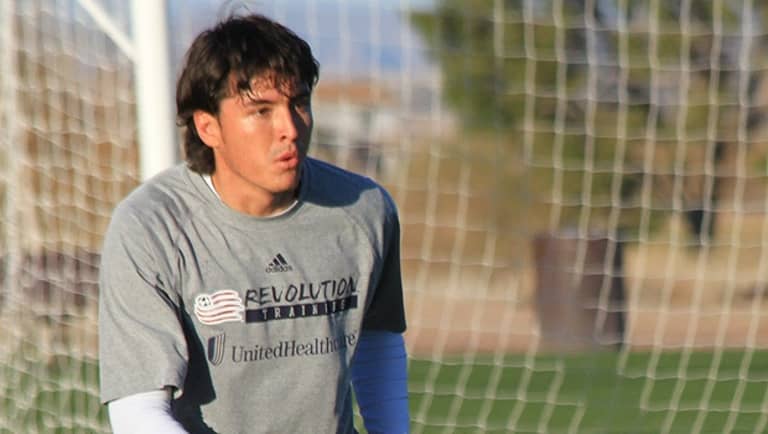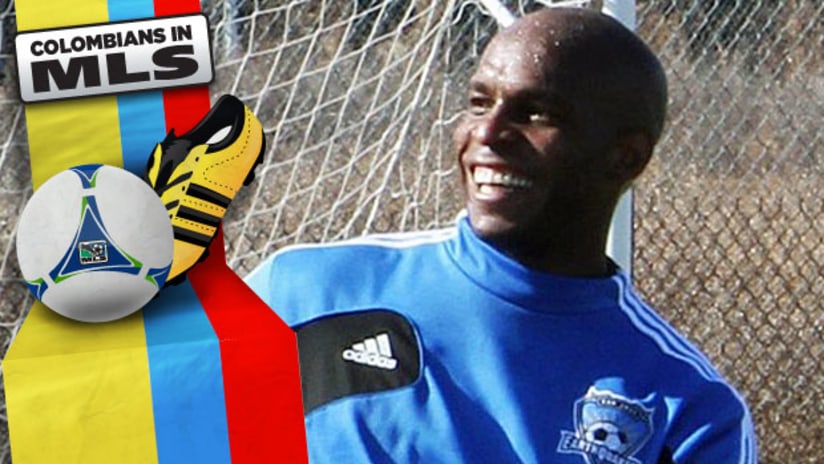As First Kick approaches, MLSsoccer.com is unveiling a three-part series examining the growing influence of Colombian players in Major League Soccer, the reasons behind the influx of players to the league this offseason and which teams are finding Colombia to be a fertile hunting ground for undiscovered talent.
In the second installment, FutbolMLS.com editor Edgar Acero looks at the various reasons Colombian players are on the move to MLS.
One league’s failure is another’s success. That’s the simplest way to describe the current relationship between Major League Soccer and Colombia’s Liga Postobón.
While there are a numbers of unresolved issues in Colombia’s top league -- delayed payments to players and an overall drop in the level of soccer being played are the chief concerns -- the United States and Canada are steadily on the rise as MLS continues to grow with the influence of players worldwide.
Colombian players are starting to recognize the opportunities that MLS can provide as much as any nationality. They’ve seen what some of their successful compatriots have accomplished over the years (think Fredy Montero, Jámison Olave, and Juan Pablo Ángel), and they’re learning they can live comfortably and securely in North America while playing a very competitive brand of soccer.
READ: Montero a pioneer for Colombia's next generation
FC Dallas coach Schellas Hyndman knows as well as anyone the latest consensus among Colombians. He has four on his roster this season after the recent acquisition of defender Hernán Pertúz, one of 14 Colombians who joined MLS teams this offseason.
“Some of the other [Colombian] players come here thinking that this is just as good of an opportunity as going to Europe because you’re getting world exposure,” Hyndman told MLSsoccer.com. “You got the Henrys playing, the Beckhams playing, and those games are watched all over the world. Another thing is, I think they see how their countrymen are doing. They say now ‘hey, I’m not going to be the first.”
WATCH: Colombianos en MLS y la SeleccIon
The league’s newcomers this offseason pushed the total of Colombian players to 28, more than any other nationality in the league other than the United States.
“I think it’s a great opportunity,” said Tressor Moreno, the new Colombian playmaker for San Jose Earthquakes. “I know MLS because many Colombians have played here and I watched them on TV before coming.”
Moreno was clearly not the only Colombian checking the progress of his compatriots in MLS from far away. The New England Revolution’s Fernando Cárdenas was very attentive of the league while playing for América de Cali in his native country, and paid special attention to what his former teammates from Deportes Tolima did last year for the Portland Timbers.
“In Tolima I played with [Diego] Chara and [Jorge] Perlaza. I didn’t have the chance to speak to them but I saw them play a lot when I was in Colombia,” Cárdenas told MLSsoccer.com. “So I made the decision to come here.”
According to Cárdenas, he had offers from other countries but decided to play for the Revs because “soccer in MLS is reaching an optimal level.”
In Moreno’s case with San Jose, his decision materialized after he realized that the contract the MLS club was offering was something “serious.”
“The decision was made because the proposition from San Jose was just very good,” he said.
Trouble In Colombia
Finances are of course part of reason Colombians have migrated to MLS in increasing numbers recently, but it’s not only that MLS pays better. That they pay on time as promised, with no hiccups or delays, is a trump card for the league as it courts players who have left out to dry in Colombia.
Juan Carlos Torres, who represents forward Lionard Pajoy and was part of the negotiations to bring him to Philadelphia Union this offseason, explained that the crisis in Colombia has reached a point where some of the clubs can’t even come up with the salary payments they offered their players.
“Colombian clubs, with some exceptions, don’t fulfill the payments,” Torres wrote in an email message to MLSsoccer.com. “Cúcuta and Once Caldas have serious problems, so much so that Cúcuta Deportivo could file for bankruptcy if it doesn’t offer a good financing plan.”

Hyndman has heard the rumors too.
“In Colombia maybe some of the players are not getting paid, and I’ve heard that,” said Hyndman. “But here, every player gets a paycheck.”
Perhaps the biggest example of a Colombian team on the ropes is former power América de Cali, which was relegated to the country’s second division last season.
“América [de Cali] is in trouble,” Torres said in an email. “This team owed up to eight months of salary to the players.”
And it’s América de Cali from which two of the three Colombians in New England have come to make their mark in 2012. Cárdenas and defender John Lozano signed with the Revs hoping to advance their professional career, but Lozano still laments the current situation of his former club.
“Maybe it was something that had to happen so that the team can surpass the economic issues it has at the moment,” Lozano (right) told MLSsoccer.com. “Whether the team has stated on the [Primera] A or the [Primera] B, this – the opportunity to play abroad – was something I had been searching for,” he said. “I had been playing for a very long time in Colombia. I investigated the Revolution and found out that they’re a big team here; that motivates you.”
More Head Than Heart
While the consistent growth of MLS and the current situation of Colombian soccer are two major factors driving the Colombian wave to the league, one of the most influential ones for the players is the quality of life in the United States.
“Along comes an opportunity where more than the sporting angle, it’s the family one,” said Chicago Fire midfielder Rafael Robayo, who joined the club from Millonarios after seven seasons. “It’s a change of culture, a change of life. I know these decisions will bring good things in the future. It’s good to learn and get better, not only in my career but in my personal life as well.”
“These decisions have to be made more with your head than with your heart,” he said.
And like that, there are almost 30 Colombians who will be playing in MLS this season. Their motives – common and different – have taken them to a league where they can play at a very competitive level on the field but at the same time enjoy the tranquility of a secure life off of it.













